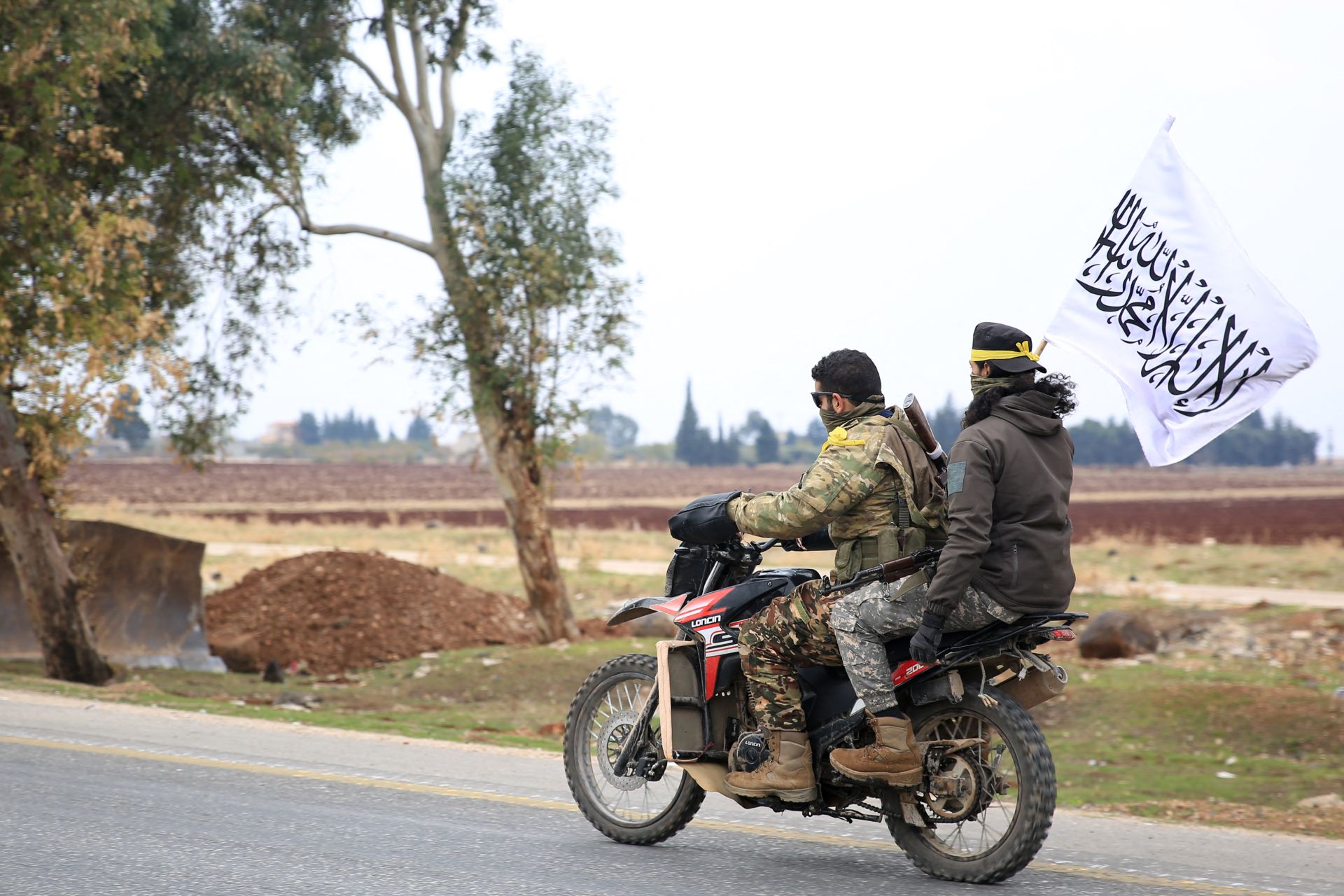- Home
- Middle East
- Syria Rebels Say They Control Homs

Anti-government forces drive in city of al-Rastan in Syria's west-central province of Homs on December 7, 2024, on their way to the city of Homs. ©Photo by Aref TAMMAWI / AFP
Islamist-led rebels announced Sunday they had captured the strategic city of Homs, on the way towards Damascus where Syria's embattled government said it was setting up an impenetrable security cordon.
The defence ministry earlier denied rebels had entered Homs, describing the situation there as "safe and stable".
But the leader of the Islamist Hayat Tahrir al-Sham (HTS) group, Ahmed al-Sharaa, said their control over Homs marked a "historic event that will distinguish between truth and falsehood".
The capture of Homs, Syria's third-largest city, would cut the seat of power in the capital Damascus from the Mediterranean coast, a key bastion of the Assad clan which has ruled Syria for the past five decades.
Hassan Abdel Ghani, a leading commander of the Islamist-led rebel coalition, said the group's "operations continue to fully liberate the Damascus countryside".
"Our eyes are on the capital, Damascus", he said on Telegram.
Earlier, President Bashar al-Assad's government denied the army had withdrawn from areas around Damascus.
"A very strong security and military cordon" was being established around the capital "and no one... can penetrate this defensive line that we, the armed forces, are building," Interior Minister Mohammed al-Rahmoun told state television.
Homs lies about 140 kilometres (85 miles) north of the capital and is the third major city seized by the rebels who began their advance on November 27, reigniting a years-long war that had become largely dormant.
Rami Abdel Rahman, head of the Britain-based Syrian Observatory for Human Rights, earlier reported rebel factions taking control of some Homs neighbourhoods "after the withdrawal of security forces and the army from their last positions in the city".
Abdel Ghani said the rebels had freed more than 3,500 detainees from the central prison of Homs.
The defence ministry said "armed forces are deployed around the city, positioned in strong defensive lines reinforced with various types of weapons".
The HTS leader told fighters to prepare to take the capital.
"Damascus awaits you," he said on Telegram, using his real name instead of his nom de guerre, Abu Mohammed al-Jolani.
But the defence ministry insisted: "There is no truth to news claiming our armed forces... have withdrawn" from positions near Damascus.
The Syrian army said that, in addition to the area around Damascus, it was reinforcing positions in the south, and operations against the rebels were beginning in the Hama, Homs and Daraa areas.
AFP has been unable to independently verify some of the information provided by the government and the rebels, as its journalists cannot reach the areas around Damascus where the rebels say they are present.
Residents of the capital described to AFP a state of panic as traffic jams clogged the city centre, people sought supplies and queued to withdraw money from ATMs.
"The situation was not like this when I left my house this morning... suddenly everyone was scared," said one woman, Rania.
A few kilometres (miles) away, the mood was starkly different. In a Damascus suburb, witnesses said protesters toppled a statue of Assad's father, the late leader Hafez al-Assad.
AFPTV images from Hama, Syria's fourth-largest city, showed abandoned tanks and other armoured vehicles, one of them on fire.
Hama resident Kharfan Mansour said he was "happy with the liberation of Hama and the liberation of Syria from the Assad regime".
The president's office denied reports Assad had left Damascus, saying he was working "from the capital".
With AFP
Read more



Comments